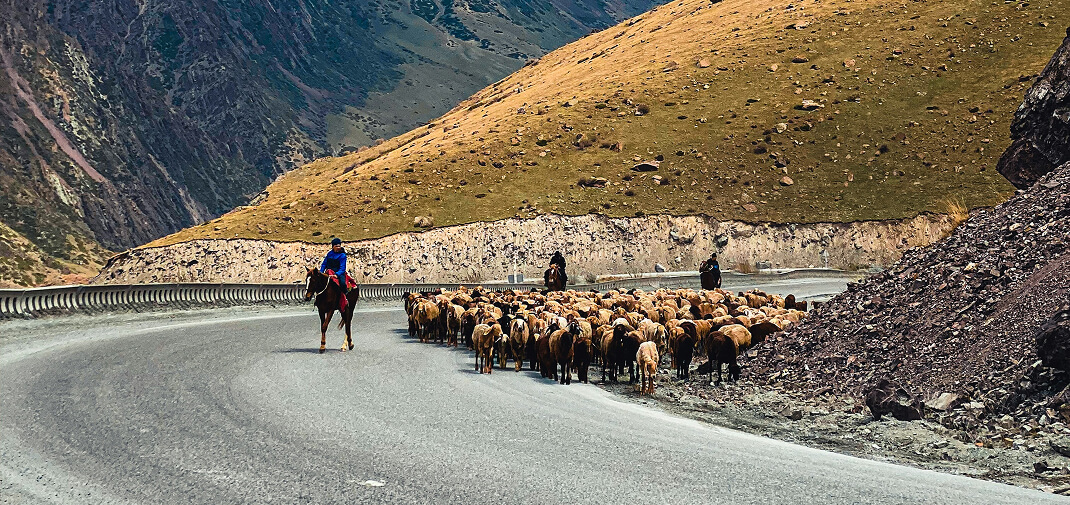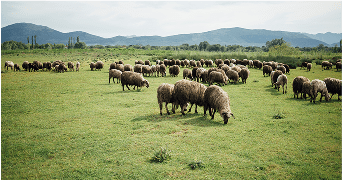
Crashes involving livestock are more common than most drivers expect. Rural roads near farms, ranches, or open grazing areas carry a higher risk of encountering cows, horses, or goats in traffic. Many collisions occur when an animal escapes its enclosure and enters the road. A crash with a loose animal can leave drivers facing serious injuries, a wrecked vehicle, and unanswered questions about liability.
In California, ranchers and landowners have a duty to keep livestock off public roads. Whether you can sue a rancher for a livestock accident depends on where the collision occurred, what fencing laws apply, and what the animal’s owner did to prevent the animal from getting loose.
Find out how California law determines liability when livestock causes a crash, what landowners are required to do, and when it may be possible to pursue a claim after a livestock-related car accident.
California Law Requires Livestock Owners to Secure Their Animals
When a livestock animal enters a public road, the law looks at what the owner did to prevent it. California does not excuse landowners who ignore broken fences, unsecured gates, or repeated escapes. The responsibility to contain animals rests with the person who owns or controls them.
Under California’s Food and Agricultural Code, livestock must not roam freely on highways bordered by enclosed property. That includes roads lined with fences, walls, or other physical dividers. If the owner failed to maintain a barrier or knew about prior escapes and did nothing, they may be held legally responsible for the collision.
When Can You Sue a Rancher for a Livestock Accident?
You may be able to sue a rancher for a livestock accident if there is evidence that the owner failed to secure the animal properly. That could include:
- A history of animals escaping from the same location,
- Broken or damaged fencing that was never repaired,
- Gates left unlocked or open near public roads, or
- Livestock housed near traffic routes without barriers or supervision.
California law requires livestock owners to prevent animals from entering roads bordered by fenced or enclosed property. Failing to repair broken barriers or ignoring signs that livestock may escape can expose the owner to a civil claim if a collision occurs.
However, the law also states that the fact of a collision alone does not automatically make a livestock owner negligent. To hold a rancher or landowner accountable, the injured party must show that the owner failed to take reasonable steps to contain the animal.
Fencing Laws Can Determine Landowner Responsibility
Fencing often plays a central role in determining whether a landowner can be held liable for a livestock-related crash. Ranchers must maintain fencing when their property borders a road to prevent animals from entering traffic. If they knew the fencing was damaged or inadequate and failed to fix it, they may be responsible for any injuries that result.
Liability becomes less clear when the crash occurs in an open range area, where livestock may legally roam. In those cases, a rancher is typically not liable unless there is strong evidence that they behaved recklessly or negligently. Identifying the exact location of the crash and the type of land surrounding the road is key to evaluating whether the landowner may be at fault.
Proving Negligence in Livestock Collision Cases
To sue a rancher for a livestock accident, you must show that the owner’s negligence directly caused the crash. That typically involves proving four elements:
- Duty of care. The owner had a responsibility to contain their animals.
- Breach of duty. The owner failed in that duty, e.g., by neglecting to maintain fencing, secure a gate, or monitor livestock.
- Causation. The escaped animal directly led to the crash.
- Damages. The injured party suffered measurable harm, such as medical bills, lost wages, or vehicle damage.
Proving negligence requires strong documentary and physical evidence. This could include police reports, crash site photos, property records, and witness statements. If the animal had gotten out before or neighbors had previously complained about poor fencing, that history may strengthen the argument that the landowner acted carelessly.
California also follows a pure comparative negligence rule. That means even if you were partly at fault in the collision, you can still recover compensation. For example, imagine a rancher left a gate open, and a cow wandered into the road and was struck by your car. However, if you were also driving over the speed limit at the time of the collision, a court may assign 20% of the fault to you. If your total damages were $100,000, your compensation would be reduced by your percentage of fault, resulting in an $80,000 recovery.
What to Do After a Crash with a Cow, Horse, or Goat
If you’re involved in a crash caused by livestock on the road, taking the proper steps after the accident can protect your health and your potential claim. After the collision, be sure to:
- Call law enforcement to file a formal report;
- Take photos of the animal, damage, and surrounding fencing or property lines;
- Look for ear tags, branding, or other markings that may help identify the owner;
- Seek medical attention immediately; and
- Contact an attorney who understands livestock liability law.
Claims involving livestock can include disputed facts, unclear fencing boundaries, and arguments about landowner responsibility. The animal’s owner may deny responsibility, and there may be no presumption of fault under the law. That’s why working with an attorney who knows how to investigate fencing conditions, landowner history, and California agricultural code is important.
Contact Silva Injury Law to Discuss a Livestock Accident Claim
You may have grounds to file a claim against the animal’s owner if a loose cow, horse, or other farm animal caused your injury. In many cases, you can sue a rancher for a livestock accident if they failed to follow fencing laws or ignored signs that an animal might escape.
Silva Injury Law represents injured drivers throughout California in livestock accident cases. We understand how to evaluate the facts, preserve critical evidence, and hold negligent landowners accountable when their failure to act causes harm. Our team has helped injured victims across the Central Valley fight for the compensation they deserve, and we’re prepared to help you.
Call or fill out our online contact form to schedule a free consultation with a livestock accident attorney today.
Resources:
California Food & Agricultural Code, § 17124, link.
